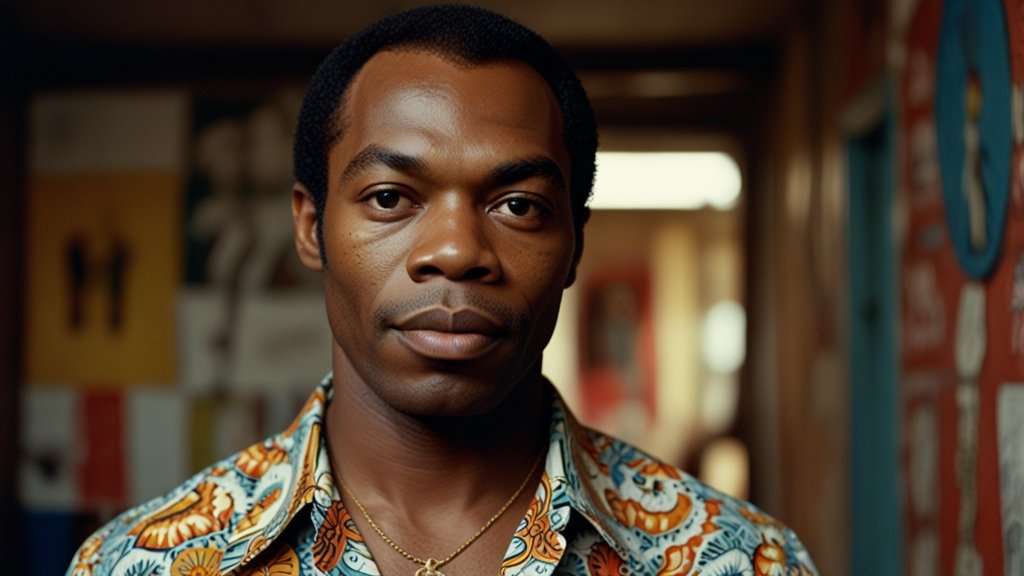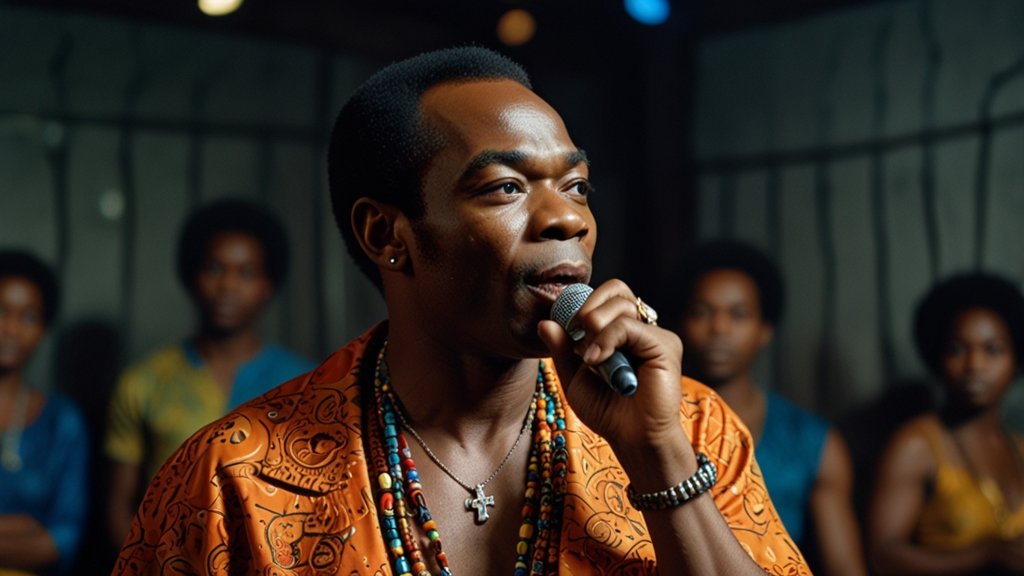
The Diverse Genres of Afro Music
The vibrant world of Afro music encompasses a diverse range of genres, each with its own unique characteristics and cultural significance. Central to this tapestry is Afrobeat, a genre pioneered by the legendary Fela Kuti in the 1970s. Afrobeat is characterized by its fusion of traditional African rhythms with elements of jazz, funk, and highlife. Kuti’s innovative approach not only showcased African musical forms but also served as a platform for political and social commentary, reflecting the struggles of the Nigerian people during a tumultuous period.
Beyond Afrobeat, the contemporary genre of Afrobeats has gained significant traction globally, pioneered by artists such as Burna Boy, Davido, and Tiwa Savage. Unlike its predecessor, Afrobeats is more of a collective term that encompasses various styles and influences, often combining catchy melodies and danceable rhythms with electronic elements. This genre has become a cultural phenomenon, facilitating the spread of African music across international borders and appealing to a diverse audience.
In addition to these modern genres, traditional folk music remains a crucial part of Afro music. Each ethnic group within Africa has its unique folk traditions, reflecting the local languages, beliefs, and customs through music. Instruments such as the djembe, kora, and balafon are often employed in folk performances, creating a connection to the past and preserving the rich history of African storytelling through song.
The evolution of these genres highlights the dynamic interplay between traditional African music and global influences. As artists like Flavor and Yemi Alade blend contemporary styles with traditional sounds, they not only celebrate their heritage but also demonstrate how Afro music continues to adapt and flourish in an ever-changing musical landscape.
Instrumentation in Afro Music
The instrumentation in Afro music is a vital component that contributes significantly to its unique sound and cultural identity. Among the most prominent instruments in traditional Afro music are various types of drums, which serve not only as rhythm keepers but also as communicative tools within communities. Instruments such as the djembe, talking drum, and various other hand-played drums are central to African music, creating intricate polyrhythms that energize performances and dances.
Another traditional instrument of significance is the kora, a 21-stringed lute from West Africa. The kora combines aspects of both string and percussion instruments, producing a resonant sound that is rich in texture. It is primarily associated with the griots—storytellers and oral historians—of the region, and its melodies often accompany narratives that preserve cultural history. Similarly, the mbira, or thumb piano, is widely recognized in various African cultures. Its unique sound is derived from plucking metal tines, producing ethereal tones that are a hallmark of the Shona people’s music in Zimbabwe.
In addition to traditional instruments, Afro music has seen the integration of modern sounds, blending electronic elements and contemporary instruments. Artists such as Burna Boy, Davido, and Tiwa Savage showcase how contemporary production techniques enhance the traditional rhythms and melodies, creating a fusion that appeals to a global audience. The use of brass instruments and synthesizers further diversifies the sonic palette of Afro music, allowing musicians like Flavor and Yemi Alade to experiment with different genres while maintaining their cultural roots. This dynamic interplay between traditional and modern instrumentation underscores the evolutionary nature of Afro music, ensuring its relevance in today’s diverse musical landscape.
Cultural Expression through Afro Music
Afro music serves as a powerful medium for cultural expression, reflecting the diverse experiences, identities, and sociopolitical realities of the African continent. This genre encompasses a range of musical styles, from the classic sounds of Fela Kuti’s Afrobeat, which emphasizes political and social themes, to contemporary artists like Burna Boy and Davido, who blend traditional rhythms with modern influences to address issues that resonate with younger generations. Through their lyrics and compositions, these artists often explore themes related to cultural identity, societal challenges, and community solidarity.
Identity is a recurring theme within Afro music, as many artists highlight their roots and embrace their heritage. For instance, Tiwa Savage and Yemi Alade incorporate elements of traditional African music and storytelling into their works, shaping a distinctive sound that celebrates their cultural backgrounds. Similarly, Flavor’s music showcases the rich tapestry of Igbo culture, promoting pride in ethnic heritage while navigating modern life. These artists utilize their platform to remind listeners of their cultural connections, forging a sense of belonging through their songs.
Politics and social commentary are also crucial aspects of Afro music. Artists like Fela Kuti were known for their unapologetic critique of governance and social injustices, while contemporary singers like Burna Boy continue this tradition. Tracks addressing corruption, inequality, and societal struggles resonate widely, not just within Africa but globally. The call for unity and action against oppression reverberates through the music, engaging listeners in reflection and dialogue about their collective realities.
Moreover, Afro music is integral to cultural events and celebrations, serving to strengthen community ties and foster collective identity. Festivals, weddings, and religious ceremonies often feature Afro music as a means of celebration and unity. The shared experience of music builds a sense of community, allowing individuals to come together and celebrate their culture, heritage, and shared aspirations. In this way, Afro music is not merely an auditory experience; it is a vital conduit for cultural expression and social cohesion.
Global Impact and Influential Artists
Afro music has transcended geographical boundaries, evolving into a global phenomenon that captures the hearts and minds of diverse audiences. This genre, deeply rooted in African musical traditions, has gained recognition worldwide, largely due to the contributions of artists such as Fela Kuti, Burna Boy, and Tiwa Savage, who have skillfully blended traditional styles with contemporary sounds. These artists have redefined the genre, making it appealing to a broader audience while preserving its cultural essence.
Fela Kuti, often referred to as the pioneer of Afrobeat, has significantly shaped the genre’s narrative. His music, infused with highlife, jazz, and funk, served as a platform for political expression, addressing social issues in Nigeria and beyond. Kuti’s legacy continues to inspire a new generation of artists who are also using their platforms to comment on current societal challenges. Closely following in his footsteps, Burna Boy has garnered international acclaim by fusing elements of dancehall, reggae, and Afrobeat, resulting in a sound that resonates with millions globally. His songs often reflect personal experiences and broader societal themes, connecting with audiences on an emotional level.
A prominent figure among female artists in the genre is Yemi Alade, whose energetic performances and vibrant sound celebrate African femininity and empowerment. Similarly, Davido and Flavor have made significant contributions, infusing their work with catchy rhythms and rich melodies that embody the eclectic spirit of Afro music. Collaborations with artists across various genres have further amplified the reach of Afro music. For instance, partnerships with international stars such as Major Lazer and Beyoncé have introduced Afro music to new listeners, fostering cross-cultural exchanges that enrich the genre.
As Afro music maintains its global momentum, it continues to serve as a conduit for cultural dialogue, encouraging appreciation for Africa’s rich musical heritage. The influence of these artists reflects a harmonious blend of tradition and modernity, solidifying Afro music’s place on the world stage.
At Light House Streak, we streak the lines.
